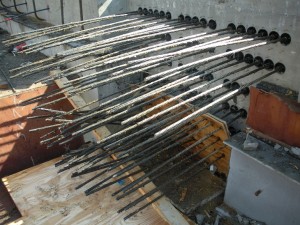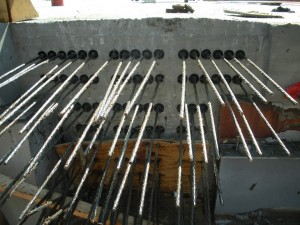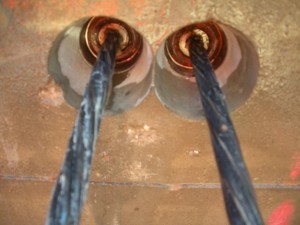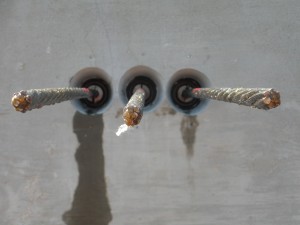Having clean anchor cavities is one of the most important part of getting proper elongations of unbonded post-tensioning tendons.
Since construction is not the cleanest of jobs, there may be debris inside the PT anchor cavity. A major cause of under-elongations and/or strand-slippage is due to having debris (concrete, dirt, mud, etc.) inside the PT anchor cavity. The debris doesn’t allow the wedges to seat properly (the wedges are inside the anchor cavity and hold the strand in place after the stressing operation). If enough tendons have under-elongations, then the structure may not have enough force within the concrete member. Therefore, it is important to have clean anchor cavities prior to stressing operations.
In order to clean the post-tension anchor cavities prior to stressing (and installation of wedges), we recommend spraying WD-40, or approved equal, into the anchor. This non-corrosive chemical should dislodge any loose debris. Afterwards, the strand and anchor cavities should be cleaned prior to the installation of the wedges and the stressing operations. (Note: The WD-40 should be compatible with the post-tension grouting used to fill the anchor cavity. The anchor cavity must be clean in order for the grout to bond properly.)
– Neel Khosa, Vice President, AMSYSCO
Pictures taken by AMSYSCO on the 31st Street Marina Harbor project. Structural Engineer: Desman Associates. General and Concrete Contractor: McHugh Construction.
_________________________________________________
Copyright © 2011 by AMSYSCO, Inc. All rights reserved.














